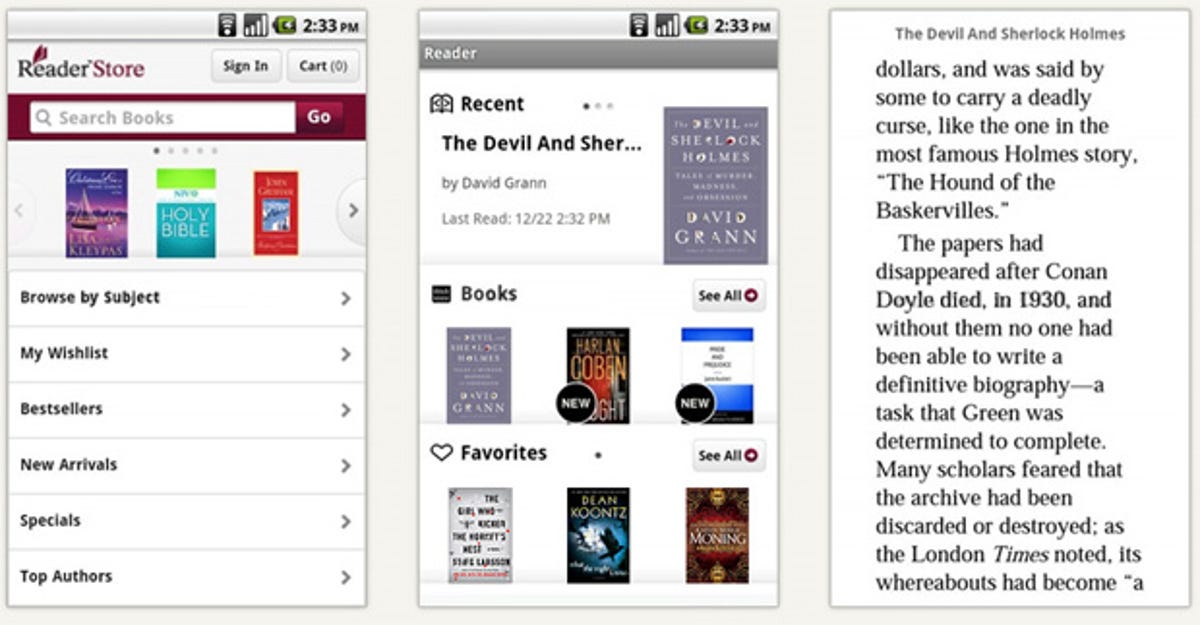
Apple’s decision to get tough on companies whose iPhone apps bill users directly has its highest-profile victim yet: Sony. The company says its Sony Reader app has been rejected by Apple, because it let users buy ebooks from Sony’s own store without using Apple’s in-app payments.
“It’s the opposite of what we wanted to bring to the market,” Sony’s ebooks boss Steve Haber tells the New York Times. “We always wanted to bring the content to as many devices as possible, not one device to one store.”
At first glance, the news is rather baffling. Amazon’s Kindle app for iPhone and iPad has been on the App Store for nearly two years, charging users for ebooks via their Amazon accounts rather than Apple’s billing system.
Sony has fallen foul of a change in Apple’s rules, however, designed to make developers use in-app payments for any content acquired or accessed within their iPhone apps.
Last week, media industry website Monday Note published details of rejection emails sent to developers by Apple, which claimed that, “For existing apps already on the App Store, we are providing a grace period to bring your app into compliance with this guideline. To ensure your app remains on the App Store, please submit an update that uses the In App Purchase API for purchasing content, by 30 June 2011.”
So, while Sony’s ebooks app has been rejected — according to Sony, anyway — the Kindle app could go the same way if Amazon doesn’t start using Apple’s in-app payments by the end of June. Apple takes a 30 per cent share of all in-app payments: companies such as Amazon and Sony will still be able to sell ebooks from their own stores, but they’ll have to either absorb that 30 per cent slice of the selling price, or add it on for iOS users to pay.
It’s not good news for those of us who have Apple’s iBooks app and Amazon’s Kindle app on our iPhones or iPads, and enjoy being able to compare prices between the two stores and buying the cheapest version of an ebook (which is frequently on Kindle). The new rule could also affect apps that charge users subscriptions outside the App Store, such as music service Spotify.
For now, the ball is back in Sony’s court with its Reader app: the company hasn’t said whether it plans to re-submit it with in-app payments, or give up on iOS native apps. It’s worth noting that the company already has a free Reader for Android application available for Google-powered smart phones — that’s the version pictured at the top of this story.
We use that phrase deliberately though: an alternative for these companies would be to launch Web-based e-readers for iPhone and iPad, allowing people to buy ebooks and read them within the Safari browser — something that requires no approval from Apple. That’s the approach being taken by Google with its Google Books service, which has yet to launch here in the UK.



